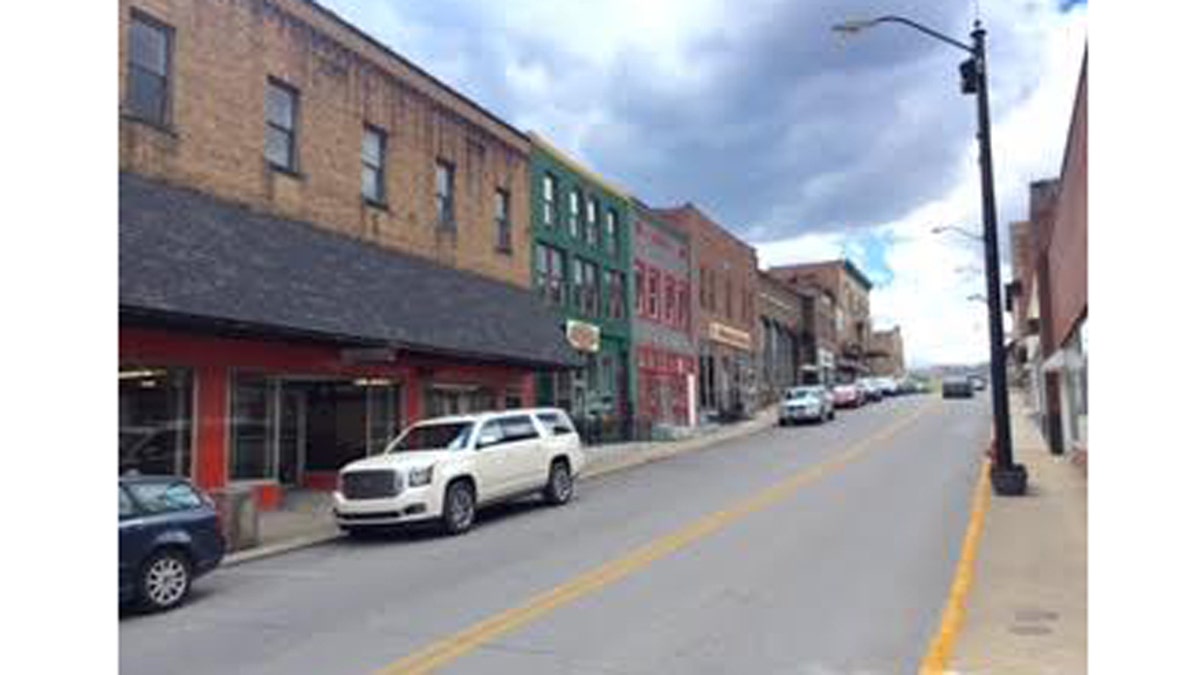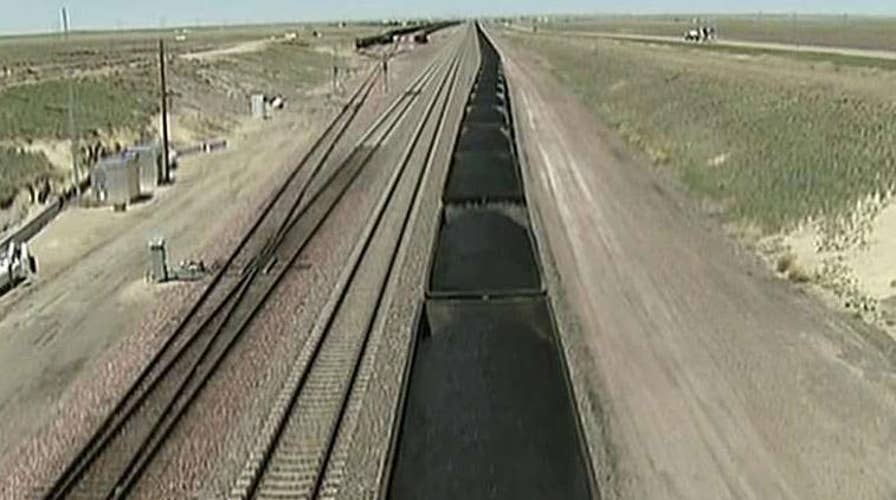On any given Friday morning, Tom Watko arrives at the food pantry in Whitesburg, Kentucky, to pack boxes of canned vegetables and frozen chicken legs for the residents already waiting in line outside the door.
The Letcher County Food Pantry, a non-profit that was established with money from a legal settlement after a mining disaster 40 years ago, is one of the few places in the central Appalachian county attracting customers.
Whitesburg has become the poster child for the war on coal.

Ronnie Thornsbury, a volunteer at the food pantry, helps pack free meals for more than 1,000 people a month.
"Coal was our golden egg and it just no longer exists and people are struggling to make ends meet," said James Craft, Whitesburg's mayor for the past 10 years.
"The impact has been absolutely devastating, with no discernible method of income for most of the people," Craft told FoxNews.com. "We desperately need some infusion from the federal government."
Of the 24,000 people who live in Letcher County, only 100 still work in coal-related jobs, according to county officials. Nearly 30 years ago, there were more than 1,700.
Coal jobs in Kentucky and West Virginia have been on the decline for decades -- long before President Obama took office. According to data from the Mine Safety and Health Administration, the two states together have lost 38,000 coal jobs since 1983.
But job losses in recent years have been especially staggering, the result of tighter regulatory policies and cheaper power plant fuels, like natural gas.
In Letcher County, the unemployment rate stands at 13.4 percent -- the fifth-highest county in the state. The highest unemployment rate is in Magoffin County, at 21.6 percent, followed by Leslie County, with 13.7 percent.
The unemployment rate statewide is 5.8 percent, making Kentucky tied for the sixth highest jobless rate in the country. One year ago, Kentucky's unemployment rate was 5.3 percent, and has risen over the past six months. It is currently one of 16 states with a jobless rate above the national average.
While unemployment in some Kentucky counties is staggering, local law enforcement officials say the crime rate hasn't significantly increased, in part, because many of the jobless are leaving.
"Our population is dropping and people are going to other places to get jobs," Letcher County Sheriff Danny Webb told FoxNews.com.
Mayor Craft said Whitesburg -- a small city with a population of about 2,140 -- is trying to redefine itself with tourism.
"We’re making us a destination," Craft said, noting the Appalshop, a multi-disciplinary arts and education center founded in 1969 that produces original films, theater and music, as well as the opening of the "only moonshine distillery east of Lexington."

Whitesburg's Main Street
Craft also expressed optimism over a 1,200-inmate maximum security prison he said the federal govermnent plans to build in Letcher County -- ironically, on a former mining site. Construction on the $444 million project is expected to begin in two years, and is expected to create 300 full-time jobs -- along with new much-needed revenue streams.
At the Letcher County Food Pantry, meanwhile, a steady stream of people file into the small, white, four-room home every Wednesday, Thursday and Friday to pick up the food basics that many can't afford to buy.
"We try to give them nutritional stuff," said Tom Watko, a 71-year-old retired safety officer who works with 15 other volunteers to provide meals for more than 1,000 people a month.
The food pantry was opened in 1982, with money from a legal settlement after the Scotia mine disaster of 1976 -- one of the worst in the state's history. The pantry operates entirely on private donations, including contributions from corporate giants like Walmart.

Most of the residents who visit the food pantry are unemployed, or have incomes below the poverty line.
"We’ve seen as many as 80 people in one day," Watko said, as he detailed the food box contents for the day: canned vegetables, cereal, spaghetti and marinara sauce and drinks.
"People here were once making very good money -- anywhere from 24 to 25 [dollars] an hour -- down to basically nothing," he said. "These families are really hurting."
Cristina Corbin is a reporter for FoxNews.com. Follow her on Twitter @CristinaCorbin.









































